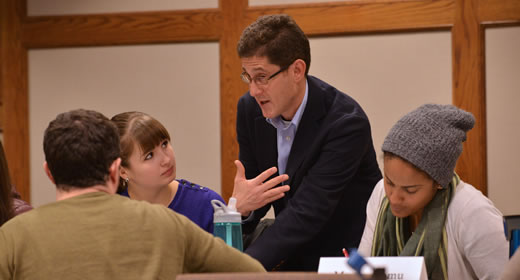
Brian Jacob was called to testify last week as a witness for the prosecution in the Atlanta Public Schools cheating trial, in which prosecutors allege a dozen educators engaged in a “widespread, cleverly disguised” conspiracy to improve their students’ test scores by changing answers.
Jacob is said to have testified that at one school, “the odds of a legitimate leap in students’ scores as purported on a 2009 standardized test was one in 288 septillion,” according to an Atlanta Journal Constitution article, "APS trial witness: Improved test scores’ odds? One in 288 septillion." (A septillion is a cardinal number represented by 1 followed by 24 zeros.)
Jacob, a statistical analysis expert, is one of 127 witnesses that have testified since the trial began more than five months ago, according to 11Alive, Atlanta’s NBC affiliate.
The 12 defendants have been charged with racketeering under Georgia’s RICO (Racketeer Influenced and Corrupt Organizations Act) statute. RICO law was enacted in the 1970s and has historically been used to prosecute mobsters and others involved in organized crime, though its application has become more widespread.
Defense attorneys are expected to ask for a dismissal of the racketeering charges this week, according to media reports.
This isn’t Jacob’s first go-around examining potential teacher improprieties pertaining to student test scores. In 2003, Jacob and University of Chicago economist Steven Levitt published a paper (Rotten Apples: An Investigation of the Prevalence and Predictors of Teacher Cheating) after analyzing test answers and scores from Chicago Public School students. Jacob (then at Harvard) and Levitt found evidence that “serious cases of cheating” occurred in 4 to 5 percent of elementary schools.
Brian Jacob is a professor of education policy, professor of economics, and professor of education at the University of Michigan. He is co-director of the Education Policy Initiative (EPI), as well as a research associate at the National Bureau of Economic Research (NBER). He has previously served as a policy analyst in the NYC Mayor's Office and taught middle school in East Harlem.
--Story by Paul Gully (MPP '16)